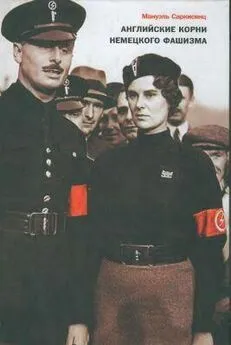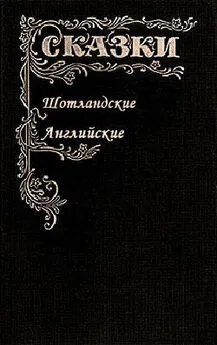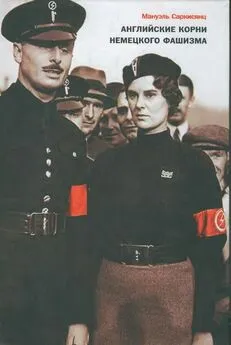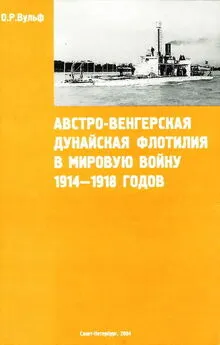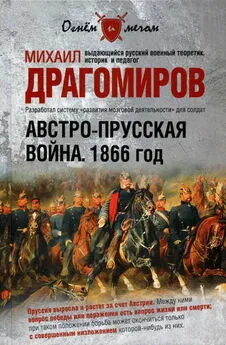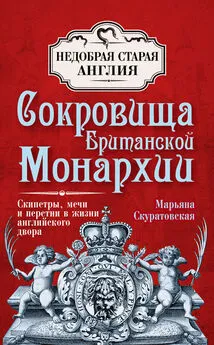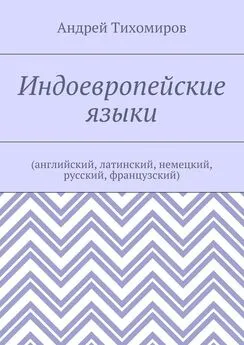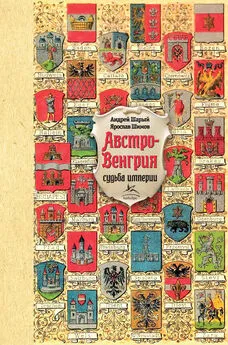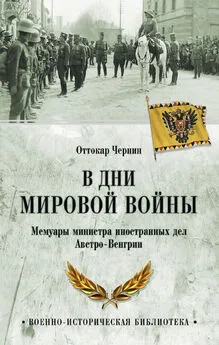Мануэль Саркисянц - Английские корни немецкого фашизма: от британской к австро-баварской «расе господ».
- Название:Английские корни немецкого фашизма: от британской к австро-баварской «расе господ».
- Автор:
- Жанр:
- Издательство:неизвестно
- Год:неизвестен
- ISBN:нет данных
- Рейтинг:
- Избранное:Добавить в избранное
-
Отзывы:
-
Ваша оценка:
Мануэль Саркисянц - Английские корни немецкого фашизма: от британской к австро-баварской «расе господ». краткое содержание
Мануэль Саркисянц (р. 1923, Баку) — известный историк и социолог, исследователь религиозных истоков народнического социализма России, Латинской Америки, Юго-Восточной Азии.
В данной книге излагается совершенно новый взгляд на происхождение немецкого фашизма. М. Саркисянц доказывает, что многие истоки идей Гитлера кроются в имперской политике и идеологии Англии. Автор последовательно показывает, как колониальная политика Англии, ее имперские амбиции, отношение к расовому вопросу, принципы воспитания и образования повлияли на формирование идей Гитлера. Подробно рассказано об идеализации гитлеровского Рейха в консервативном истеблишменте Великобритании, об участии англичан во Второй мировой войне на стороне Германии. Автор анализирует также принципиальные различия в теоретических и практических подходах британских и германских расистов, обусловивших столь разную судьбу и оценку соответствующих исторических феноменов.
Английские корни немецкого фашизма: от британской к австро-баварской «расе господ». - читать онлайн бесплатно полную версию (весь текст целиком)
Интервал:
Закладка:
1484
1091. Walter Struve, Elites against Democracy. Leadership ideals in bourgeois political thought in Germany 1890–1933 (Princeton, 1973), S. 453.
1485
1092. John Davidson, The Testament of John Davidson (London, 1908), p. 18.
1486
1092a. Patricia Meehan, The Unnecessary War (London, 1992), p. 388f: Foreign Office 371/ 46790;370/1268.
1487
1093. G. Strobl, Germanic Isle, p. 78, quoting Erich Kirsch, in: Rudolf Benze & Alfred Pudelko (Editors), Rassistische Erziehung als Unterrichtsgrundsatz (Frankfurt, 1937), S. 164; Generalbevollmachtigter fur Arbeitseinsatz, Rede vom 6. Januar 1943: Klee & Dressen, "Gott mit uns", S. 167.
1488
1094. Hermann Rauschning, Gesprache mit Hitler (Zurich, 1940), S. 250f.
1489
1095. Heinrich Himmler, Geheimreden, S. 159: Rede vom 9. Juni 1942.
1490
1096. Rauschning, Gesprache mit Hitler, S. 232; Раушнинг. С. 180; H. S. Chamberlain, Briefe, Band I (Munchen, 1928), S. 31: 15. November 1895.
1491
1097. Henry Picker, Hitlers Tischgesprache im Fuhrerhauptquartier (1963), S. 244.
1492
1098. H. Arendt, Elemente und Ursprunge totaler Herrschaft, S. 719.
1493
1098a. Ibid., S. 718; Philippe Lacoue-Labarthe, in: Le Nouvelle observateur, 22.1.1988: M. Dabag & K. Pratt, Genozid und Moderne (Opladen, 1998), S. 46; Friedrich Tenbruck, Die unbewaltigten Sozialwissenschaften oder Die Abschaffung des Menschen (Graz, 1984), S. 194 nach: Historisches Jahrbuch, Band CV(1985), S. 218.
1494
1099. Joachim Kohler, Wagners Hitler. Der Prophet und der Vollstrecker (Munchen, 1997), S. 101f.
1495
1100. F. Brie, S. 268; Rauschning, Gesprache mit Hitler, S. 237f; H. F. Peters, Zarathustras Schwester. Fritz und Lieschen Nietzsche — ein deutsches Trauerspiel (Munchen, 1983), S. 289.
1496
1101. Th. Schieder, Hermann Rauschnings "Gesprache mit Hitler" alsGeschichtsquelle= Rheinisch-Westfalische AkademiederWissenschaften, Vortrage, G 178 (Opladen, 1971), S. 19.
1497
1102. Hermann Goering, Ansprache vom 6. August 1942 vor dem Reichskommissaren fur die besetzten Gebiete und den Militarbefehlshabern: Klee & Dressen, "Gott mit uns"…, S. 204.
1498
1103. Heinrich Himmlers Rede vor SS-Gruppenfuhrer-Tagung am 4. Oktober 1943: Klee & Dressen, "Gott mit uns"…, S. 223; Lord Milner, The Nation and the Empire, p. 207.
1499
1104. Hitler, Monologe im Fuhrerhauptquartiert, S. 60: Nacht vom 14./15. September 1941.
1500
1105. Heinrich Himmler, Rede vom 9. Juni 1942: Himmler, Geheimreden, S. 151.
1501
1106. Hitlers Zweites Buch (wie Anm. 3), S. 215; Richard Wagner, Werke. Hrsg. von Peter Faessler, Band II (Frankfurt, 1966), S. 268, 269, 270, 271; Rauschning, Gesprache mit Hitler, S. 11.
1502
1107. Rauschning, Die Revolution des Nihilismus. Kulisse und Wirklichkeit im Dritten Reich (Zurich, 1938), S. 384.
1503
1107a. Rutherford, Forever England, p. 59; Thurlow, Fascism in Britain, p. 86; Ernst Bertran, Rede vom 3. Mai 1933, nach Deutsche Zeitschrift, XLVI (o. J.), S. 611, zitiert in: Franz Schonauer, Deutsche Literatur im Dritten Reich (Olten, Freiburg i. В., 1961), S. 55.
1504
1108. Joachim Kohler, Wagners Hitler, S. 249.
1505
1109. Hartmut Zelinsky, Richard Wagner — ein deutsches Thema. Dokumentation… (Berlin, 1983), S. 170: 1. Januar 1924.
1506
1110. Joachim Kohler, S. 417, 410, 405, 384, 11, 13.
1507
1111. Ibid., S. 248–251. Vgl. Margarete Plewnia, Auf dem Wage zu Hitler. Der volkische Publizist Dietrich Eckart (Berlin, 1970), S. 94-111.
1508
1111a. Thurlow, Fascism in Britain, p. 86.
1509
1112. Cosima Wagner, Tagebuch, Band II (Munchen, 1982), S. 1052: Eintragung vom 25. Mai 1877.
1510
1112a. James J. Barnes & Patience P. Barnes, Hitlers "Mein Kampf" in Britain and America, The publication history 1930–1939 (Cambridge, 1980), S. 48.
1511
1112b. A. M. Gollin, Proconsul in Politics, A study of Lord Milner (London, 1964), pp. 46, 47, 603, 573; Keith Feiling, The Life of Neville Chamberlain (London, 1947), pp. 79f: Chamberlain's Diary, note of 22. April, 1917.
1512
1113. H. Arendt, Elements und Ursprunge totaler Herrschaft, S. 719.
1513
1114. Hans Grimm, Heynade, IV, S. 5.
1514
1115. D. S. Lewis, Oswald Mosley, Fascism and British Society (as note 884), p. 263, 266.
1515
1116. Vgl. R. Griffiths, Fellow-Travellers of the Right, S. 59.
1516
1117. Oswald Mosley, My Life (London, 1968), S. 364f.
1517
1118. Theodor Schieder, Hermann Rauschmngs "Gesprache mit Hitler" als Geschichtsquelle = Rheinisch-Westfalische AkademiederWissenschaften, Vortrage,G 178(Opladen, 1971), S. 15.
1518
1119. Thomas Jones, A Diary with Letters 1931–1950 (Oxford, 1954), p. 447f.
1519
1119a. Patricia Meehan, The Unnecessary War (London, 1992), p. 388f: Foreign Office 371/46790;370/1268.
1520
1119b. John Charmley, as quoted by Caputi, p. 221.
1521
1119c. American Historical Review, Vol. CIII, No. 3 (June, 1998), p. 894.
1522
1120. Mac Dougal, The racial Myth in England history (wie Anm. 115), p. 129–130; Edwin Jones, The English Nation. The Great Myth, p. 55.
1523
1120a. David Armitage, Ideological Origins of the British Empire (Cambridge, 2000), p. 78; William Haller, Foxe's Book of Martyrs and the Elect Nation (London, 1963).
1524
1120b. Donald & Joanna Moore, The First 150 years of Singapore (Singapore, 1969), pp. 594f; cf. Kathryn Tidrick, Empire and the English Character (1992), p. 279.
1525
1120c. Lawrence James, Rise and Fall of the British Empire (London, 1994), p. 504.
1526
1120d. BBC Broadcast of 29. December, 1996, 4.30—4.45 (programme directed to North America).
1527
1120e. Lord Milner, The Nation and the Empire (1913), pp. xxxi f, xxxv: "The Two Nations" (4. December, 1912); Dibelius, II, S. 204f, 215, 216.
1528
1120f. Alfred Milner, "The Two Nations", Speech on 4. Dezember 1912: The Nation and the Empire (London, 1913), p. xxxf, xxxv; Wilhelm Dibelius, England, II, S. 215, 216, 204f; BBC-Radiosendung vom 29. Dezember 1996, 4.30—4.45 Uhr.
1529
1121. Alfred Milner, "Key to My Position": Questions of the Hour (London, 1925), quoted by Richard Symonds, Oxford and Empire (Oxford, 1991), p. 44; Walter Oehme & Kurt Caro, Kommt das Dritte Reich"? Berlin, 1930—Rohwolt: reprint 1984— Ei chhorn), S. 52; Max Vandray, Der politische Witz im Dritten Reich (Munchen, 1967), p. 149; Louis Kilzer, Churchill's Deception. The dark secret that destroyed Nazi Germany (New York, 1994), pp. 57f, 294 (George Bernhard, in: New York Times of 29. June, 1941, p. 6E), 74f, 286, 289, 61.
1530
1121a. Klaus Hildebrand, Das vergangene Reich. Deutsche Aussenpolitik von Bismark bis Hitler. 1871–1945 (Stuttgart, 1995), S. 806f; Costello, p. 187.
1531
1121b. G. Strobl, Germanic Isle. Nazi perceptions of Britain (Cambridge, 2000), pp.93f; H. Thost, Als Nationalsozialist in England (Munchen, 1939), S. 60; vgl. Wendt, S. 126.
1532
1121c. Hans Grimm, Heynade, V, S. 351; vgl. Otto Strasser, Hitler und ich (Konstanz, 1948), S. 139, 142; О. E. Schiiddekopf, Linke Leute von rechts (Stuttgart, 1960), S. 283–287.
1533
1121d. Adolf Hitler, Mein Kampf (1941), S. 154, 155. Nicolas Sombart, Rendevouz mit dem Weltgeist, p. 212: "Carl Schmitt".
1534
1121e. Helmut Sundermann, Alter Feind — was nun? Wiederbegegnung mit England und Englandern (Leoni am Starnberger See, 1955), S. 8; vgl. Gitta Sereny, Albert Speer. Das Ringen mit der Wahrheit und das deutsche Trauma (Munchen, 1997), S. 602.
1535
1121f. Heinrich von Treitschke, Politik. Vorlesungen gehalten an der Universitat zu Berlin, Bd. I (Leipzig, 1897), S. 273.
1536
1121g. Georg Steinhausen, Geschichte der deutschen Kultur (Leipzig, 1913), S. 473.
1537
1121h. Eckermann, Gesprache mit Goethe (Leipzig, 1939), S. 295; Эккерман И.-П. Разговоры с Гете в последние годы его жизни / Пер. Н, Ман. М., 1986. С. 327.
1538
1121i. Walter Hofer, Die Entfesselung des zweiten Weltkrieges. Eine Studie uber die internationalen Beziehungen im Sommer 1939 (Stuttgart, 1955), S. 175.
1539
1121j. Charles Wontworth Dilke, The Greater Britain (London, 1869), Vol. I, p. 130 (Preface), II, p. 405, quoted in: Mac Dougal (as reference 44a), p. 99; Terry Cook, "Georg R. Parkin and the concept of Britannic idealism": Journal of Canadian Studies, X, Nr. 3 (1975), p. 17, 20f.
1540
1121k. Hans Kohn, Die Idee des Nationalismus (1950), S. 247, 847; Richard Symonds, Oxford and Empire (1991), p. 243; R. Kipling "A Sond of the English": Verses (London, 1940), pp. 170, 174; Milton, Eikonoklastes (1649), iii. Line 5: John Milton, Complete Prose Works, Vol. Ill (London, 1962), p. 482; J. A. Gamb, Reflections on the origins and Destiny of Imperial Britain (London, 1900), pp. 154, 315.
1541
1121l. R. Knox, The Races of Men (Philadelphia, 1950), p. 253; cf. ibid., pp. 217, 216,220; N. C. Macnamara, Origin and Character of the British People (London, 1900), pp. 19, 208.
1542
1121m. W. R. M. Stephens, Life and Letters of Edward Freeman, Vol. II (London, 1885), pp. 230, 428.
1543
1121n. W. R. M. Stephens, Life and Letters of Edward A. Freeman, Vol. II (London, 1895), pp. 230, 428.
1544
1121o. C. R. L. Fletcher, Introductory History of England, Vol. V (London, 1904), p. 418.
1545
1121p. Mac Dougal, p. 123: 1121q. A. H. Keane, Man Past and Present (1900), p. 532f.
1546
1121r. Alfred Kelly, The Descent of Darwin. The popularization of Darwinism in Germany, 1860–1914 (Chapel Hill, USA, 1981), pp. 110, 130.
1547
1121s. Alain Cairns, Prelude to Imperialism, p. 42.
1548
1122. F. W. Hirst & Murray and Hammond (as reference 148), p. 152.
1549
1122a. Joachim Kohler, Wagners Hitler, S. 338.
1550
1123. So vor allem schon bei Thomas Carlyle (above, reference 232b).
Читать дальшеИнтервал:
Закладка:
